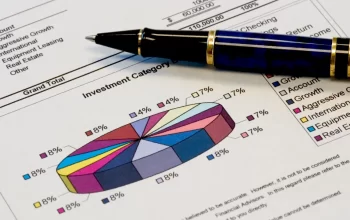International Finance is the branch of financial economics that studies the monetary and macroeconomic interrelations between two or more countries. It encompasses topics such as exchange rates, global financial integration, and foreign direct investment.
Businesses looking to expand into another country must research local market conditions and financial regulations, as well as manage their currency exposure.
Investing in Foreign Markets
Investing abroad can provide you with a diversified portfolio, particularly if you’re looking to venture away from the stock market. Additionally, it may give you access to higher-growth markets, particularly those in emerging economies.
When investing in foreign stocks, bonds or currencies, there are risks to take into account. One such risk is currency risk which may increase or decrease depending on fluctuations in the exchange rate between your domestic currency and that of a foreign country.
Another consideration is economic risk, which can arise from a country’s economic growth or political unrest. These elements may play an influential role in determining the value of stock prices.
Investors should also be mindful of the tax repercussions associated with international investments. Some countries charge withholding taxes on dividends and others have capital gains taxes.
Investment in foreign stocks can be done through mutual funds that hold various securities or exchange-traded funds (ETFs). ETFs tend to be more affordable than mutual funds and provide a fast and diversified way to add overseas assets to your portfolio.
Investing in Foreign Currencies
Investing in foreign currencies, commonly referred to as forex, can be a lucrative way to diversify your investment portfolio. Although this strategy carries greater risk, when done correctly and according to your risk tolerance level, you could potentially reap high returns.
Foreign currency trading is an act of speculation that involves buying and selling different currencies based on their exchange rate. This can be a lucrative venture for those who travel frequently or use different currencies in their businesses.
The forex market is primarily controlled by banks and institutional investors, though it can also be accessed through online brokerages or margin trading accounts. Due to its volatile and illiquid nature, currency traders should always be prepared for quick transactions.
One of the major risks in investing is currency risk – when currencies decrease in value, investments become less appealing. This phenomenon is known as currency volatility and it can impact any type of foreign exchange transaction, including mutual funds and ETFs.
Investing in Foreign Stocks
Investing in foreign stocks can be an excellent way to diversify your portfolio and take advantage of global economic expansion. It is also wise to have some exposure to emerging markets, which tend to have faster-growing economies like India, China or Brazil.
Investors may hesitate to invest in international equities due to a lack of familiarity with the companies available. But many prominent global businesses have headquarters outside the United States, making them ideal investments.
To maximize your investment portfolio’s foreign exposure, it is important to get the appropriate mix. This could be achieved through investing in international exchange-traded funds (ETFs) or mutual funds that include foreign companies, or by purchasing individual stocks through American Depository Receipts that trade on U.S. securities exchanges.
Adding foreign stocks to your portfolio doesn’t need to be a complicated or time-consuming process. ETFs and mutual funds provide an easy solution for building international exposure without the stress of selecting individual stocks.
Investing in Foreign Bonds
Investing in foreign bonds can be an excellent way to diversify your bond portfolio. These can be purchased directly as individual investments or through a bond mutual fund.
One benefit of investing in foreign bonds is the potential higher yields compared to U.S.-based ones, however they also carry greater risk. Therefore, investment experts suggest a foreign bond allocation of 15-20% as an optimal strategy.
Investors new to foreign markets should begin by comprehending the fundamentals of how they function. For instance, if you purchase a French bond, its dollar value will fluctuate due to fluctuations in the exchange rate between the United States and France.
Investing in foreign bonds can be done several ways, but the most straightforward option is finding a fund that provides simplicity and ease of trading. Some funds specialize in global or international bonds while others focus on emerging market debt.







